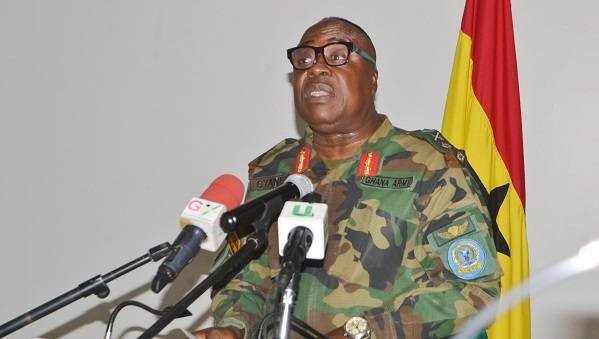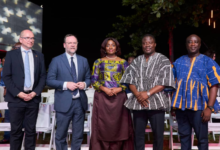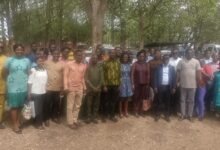KAIPTC introduces 3 new programmes …to enhance leadership skills in security organisation

The Kofi Annan International Peacekeeping Training Centre (KAIPTC) in Accra yesterday opened three courses aimed at addressing emerging global trends in peace and security, education and practice.
They are Artificial Intelligence (AI) in Peace-building, a newly introduced course; Leadership and Management in Security Organisation and Conflict Analysis and Mediation.

Running for varying periods, the courses are expected to help professionals and scholars so that they can enhance leadership skills within security organisations and leverage cutting-edge technology for peace-building efforts.
The KAIPTC Commandant, Major General Richard Addo Gyane, said the courses would help participants to explore how effective leadership and management in security organisations were key for fostering peace and security.
The AI in peace-building course, he said, would help navigate the complexities of the modern peace and security landscape, while Conflict Analysis and Mediation is fundamental to fostering peace.
“Leveraging our experience, we aim to raise awareness of its relevance in the peace and security arena. Our training programmmes are meticulously designed to develop competencies in these critical areas,” he outlined.
Commandant Gyane also said KAIPTC holds a crucial mandate of training military, police, and civilian personnel for peace and security, not only within ECOWAS, but also across Africa and beyond.
For this reason, he said the introduction of the courses were in line with the commitment of KAIPTC to bridge knowledge gaps identified in local communities and regions by providing tailor-made course to empower individuals with the necessary tools to address them.
“Many seek to enhance their capacity in peace and security by acquiring practical knowledge and skills—a critical aspect often overlooked. KAIPTC, is therefore, dedicated to providing capacity building initiatives because we recognise that the pursuit of knowledge is imperative for sustainable peace and security,” he said.
The Commandant further encouraged participants to seize the opportunity in order to engage with experts and practitioners in the field, benefitting from a platform that does not only offer valuable learning experiences but also facilitates connections and potential partnerships.
“The outcomes of discussions, forging of new networks, and the establishment of partnerships are integral to achieving our shared goal of peace and security for our country,” he stated.
BY JONATHAN DONKOR







